Rewilding Capercaillie is Croatia’s only licensed breeding enterprise for capercaillie, a rare and strictly protected bird of mountainous woodland regions, and the largest member of the grouse family. For almost ten years they have been working to reinforce their diminishing population through captive breeding.
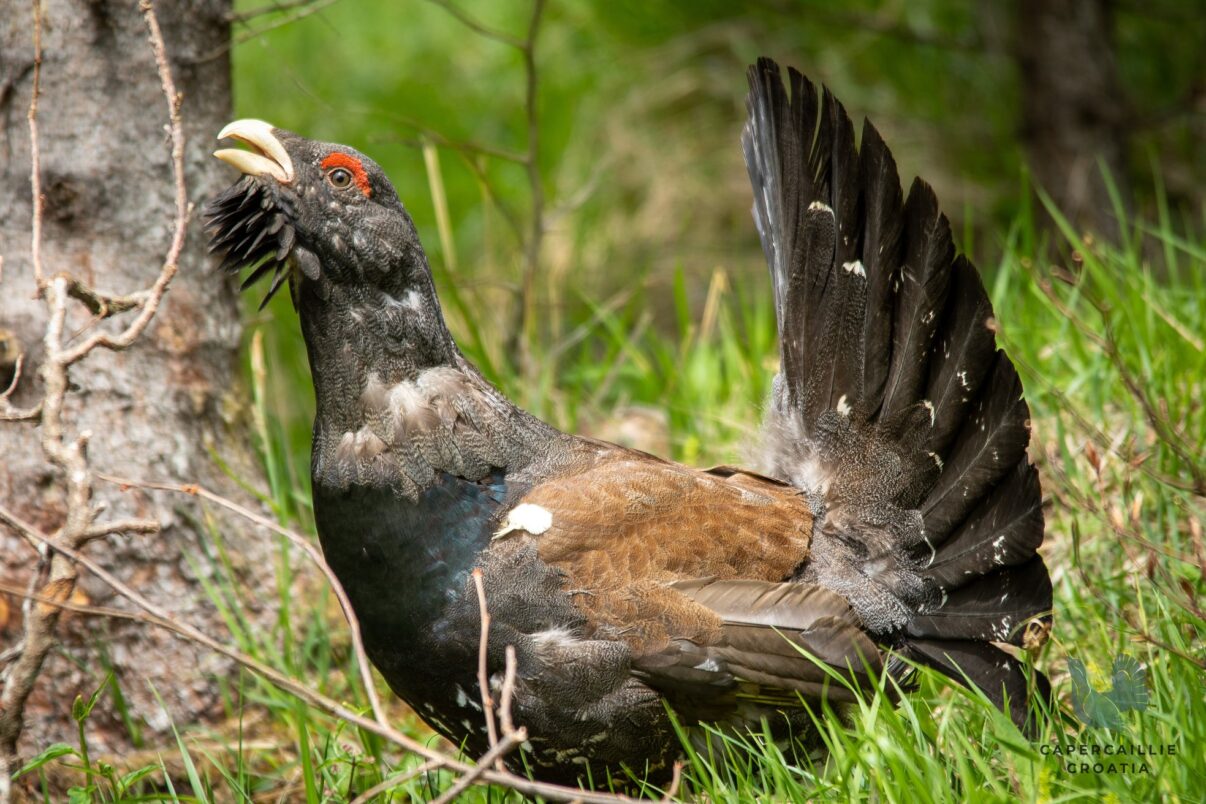
Loss of habitat
The capercaillie suffered major declines in Croatia during the last century, with deforestation and habitat fragmentation, hunting and climatic changes all playing their part. The degree to which these factors have impacted the birds remains unclear – and varies from one area to another – so one key aim of the initiative is to form a more detailed assessment of the reasons behind their dwindling numbers.
Habitat suitability analysis has been conducted along with surveys to establish accurate population sizes and the mapping of habitat corridors where two neighbouring populations can interact. Compared with censuses taken over a decade ago, their numbers appear to be so low, that without intervention the current wild population would no longer be self-sustaining in the long-term leading to a national extinction.
Wings of hope
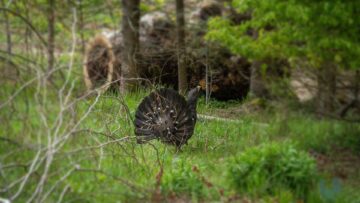
Rewilding Capercaillie’s efforts to repopulate the species onto the forested slopes of Croatia began with a breeding programme involving five birds – two male and three female – in 2012. After four years six chicks were born.
The captive breeding of capercaillie is a complex process. The females need to be two years of age before they can reproduce, and a strong bond needs to be established with a partner before successful breeding can take place.
The release phase is also critical, as Rewilding Capercaillie’s President, Ivica Kriz explains. “As with many captive breeding programmes, the main challenge is to ensure the birds do not become habituated to humans and are released with completely natural behaviours that allow them to survive and reproduce in the wild. This is particularly important with capercaillie as they are predated by many species.”
Breeding centre
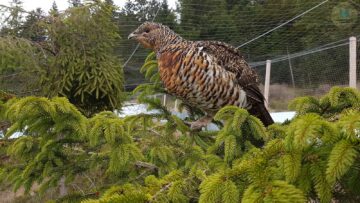
In July 2019, the Central European Breeding Centre for Capercaillie was officially opened in the region of Gorski Kotar, to function as a flagship testing ground for capercaillie research and the formation of best practice breeding models.
A critical component of the centre is the naturalistic 72m x 72m aviary, situated within ancient woodland at an elevation of 1,000 metres – where wild capercaillie can still be found today. It is a temporary home of spruce, beech, pine, maple, hawthorn, berries and ants designed to reflect their wild surroundings as closely as possible. And crucially, it has an automated seed feeding system to remove human presence and enable the birds to live independently before being released.
Collaboration with science
Rewilding Capercaillie has also signed cooperation agreements with the Faculty of Veterinary Medicine and the Faculty of Forestry, at the University of Zagreb. They cooperate on scientific and teaching activities with the aim of creating increasingly favourable conditions for future development, achieving excellence in the reproduction and research of capercaillie, and enriching our understanding of capercaillie through educational content.
Working for the Faculty of Forestry in Zagreb, the initiative performed an analysis of the threats and proposed measures for the protection of capercaillie and its habitats, as part of the first systematic and scientific research of this species in Croatia. They also developed a cooperation with the Faculty of Veterinary Medicine in Zagreb for DNA genetic analysis of capercaillie, the results of which will be important for this species’ reinforcement.
Nature-based economies
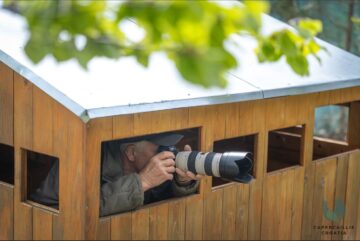
In addition to breeding capercaillie, the aviary allows birdwatchers and wildlife enthusiasts to experience up-close encounters with this elusive and mysterious species. From observation points, these birds can be photographed or recorded at any time, and the power of the imagery can greatly influence people’s awareness of the birds and the need to coexist with nature and protect the increasingly threatened environment. Additionally, Rewilding Capercaillie organise visits to natural attractions in the surrounding area to deepen people’s connection with nature.
“Becoming part of the ERN is a great step forward for us and we look forward to benefitting from the network’s large community and collective experience when it comes to reintroductions and developing nature tourism. The network is a place where we can develop our knowledge of rewilding best practices, while also sharing our experiences and findings to encourage the successful reintroduction of capercaillie in other parts of Europe.”
A platform for exchange
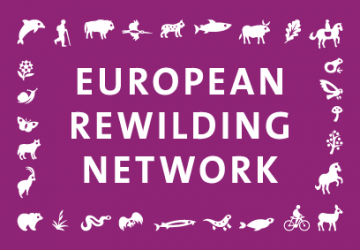
Today rewilding is gaining momentum as a progressive and effective approach to conservation in Europe. Underpinning this trend, the burgeoning European Rewilding Network continues to foster collaboration and amplify results.
Founded by Rewilding Europe in 2013, the aim of the ERN is to enhance the efforts of each member by facilitating the exchange of skills, insight and experience. Members meet regularly, usually via webinar, while nature-based businesses can also apply to Rewilding Europe Capital, Rewilding Europe’s enterprise loan facility.
Rewilding Europe extends a warm welcome to all European rewilding initiatives that focus on practical, result-oriented rewilding and encourages them to apply for ERN membership.
